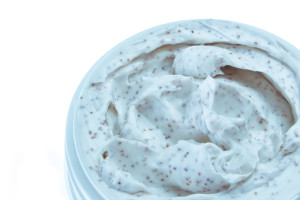 There are many ingredients in your foods and other products that you are unaware of. If you were to read every single ingredient in every product you ever purchased it would probably add up to days, weeks, or possibly years of your lifetime. That’s why you rely on the news and research to find out what’s safe and what is not. For instance, microbeads, what are they and are they harmful? Today, your Livonia, MI dentist, Dr. James Stewart, discusses microbeads in your toothpaste and tells us do they help or do they hurt?
There are many ingredients in your foods and other products that you are unaware of. If you were to read every single ingredient in every product you ever purchased it would probably add up to days, weeks, or possibly years of your lifetime. That’s why you rely on the news and research to find out what’s safe and what is not. For instance, microbeads, what are they and are they harmful? Today, your Livonia, MI dentist, Dr. James Stewart, discusses microbeads in your toothpaste and tells us do they help or do they hurt?
What are Microbeads?
Microbeads are used in a number of personal care products such as soap, scrubs, and toothpastes. They add an abrasive quality to scrub unwanted germs and debris from your hands, face, and teeth, and have replaced natural substances such as salt crystals and ground up nut shells. Tiny pieces of polyethylene (PE), polypropylene (PP), polyethylene terephthalate (PET), polymethyl methacrylate (PPMA), or nylon, they are non-biodegradable plastic about the size of a grain of salt. They are added to products as a cleanser and for color (they look like blue specks)
Are They Bad?
Microbeads are not harmful to humans, but they are harmful to the environment. The plastic does not dissolve in water or breakdown in the environment, but rather they are thought to absorb toxins. When they wash down the drain and make their way into U.S. waterways, fish and other marine animals can mistaken them for food, eat them, and die. Another concern, although it has yet to be reported, is that a tiny blue speck might get caught under a person’s gum while brushing causing inflammation and infection. Due to these reasons the Johnson & Johnson family, and Unilever, chose to discontinue their use. The state of Illinois has also banned their use in personal care products.
About Dr. Stewart
James R. Stewart, Jr, DDS, PC and our compassionate staff proudly serve patients of all ages from Livonia, Farmington Hills, Plymouth, Northville, Dearborn Heights, Garden City, and all surrounding communities. To schedule an appointment, call our office today at (734) 425-4400.


